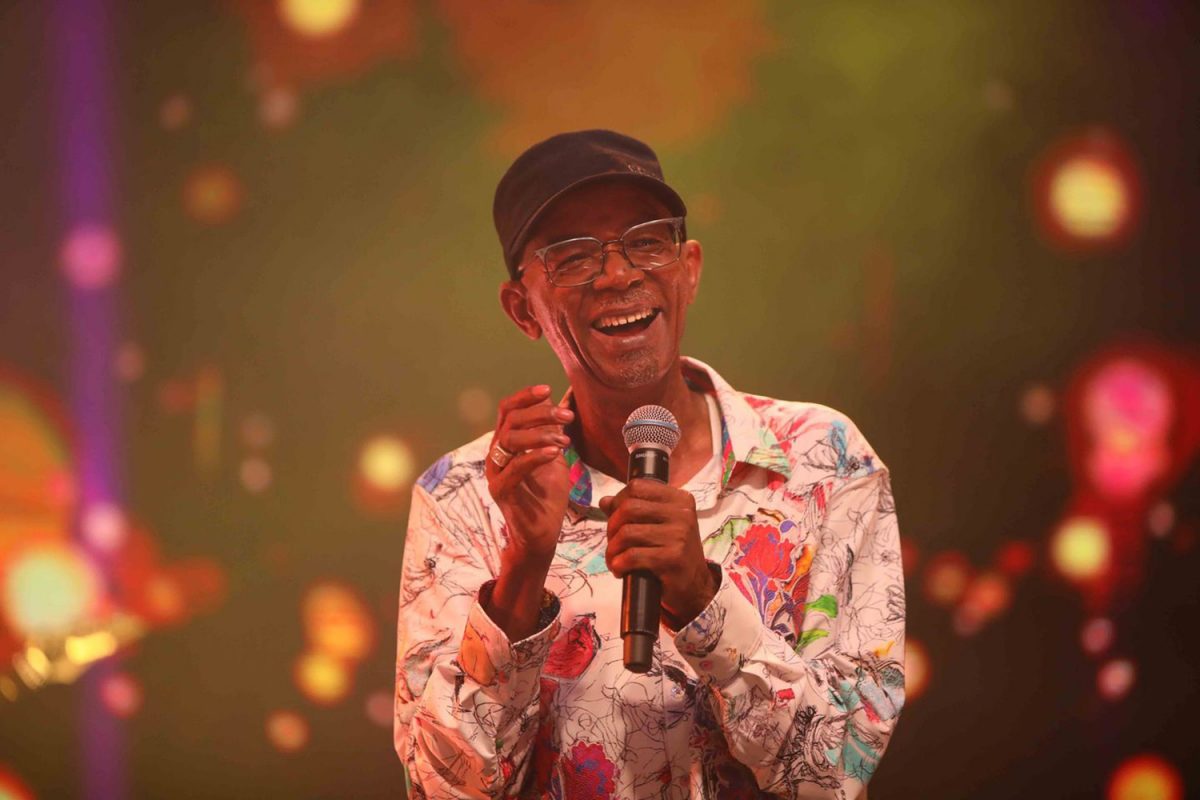Beres Hammond Says Lovers Rock Reggae “Cannot Die”

King of Lovers Rock Reggae Beres Hammond says the future of the sub-genre is still looking positive, and that the music form can only be stymied by Jamaican artists themselves.
“I came, I saw, I enjoy, I partake. Suh Lovers Rock, can’t die. That is the first thing,” the Never Ending artist said in an interview with The Entertainment Report following his iconic performance at Reggae Sumfest, after being asked by Debbie Bissoon: “can Lovers Rock carry on into the future?”
“And all Jamaican musicians, singers, deejays, dem shoulda acknowledge weh Jamaica get, an try nuh kill it. Only we can kill dis,” Beres, who was awarded the Order of Jamaica by the Jamaican government in recognition of his “exceptional and dedicated contribution to the Jamaican music industry” in 2013, added.
Lovers Rock is described as an apolitical style of Reggae combined with Rocksteady beats, which emerged in the mid-1970s and which has a distinctive romantic sound and accompanying lyrics and has its roots in the “final days of the era of rocksteady”. At the time, it was viewed as an alternative to Jamaica’s Rastafarian sound which was prevalent and which featured lyrics with religious and political messages.
Beres, who has been praised over the years for sounding live onstage just as he does on his studio tracks, said that there is no special formula for this.
“Mi just get up and sing. And what I can tell them is that don’t meck nobaddy tell yuh dat yuh caan do dis. Just do it. The Almighty responsible fi you… I don’t know if that’s a formula in itself. Mi nuh dice words and mi nuh dilute my message. I sing what comes from the heart, yeh,” the St Mary native explained.
Beres broke onto the music scene in 1985 with his Dancehall hit What One Dance Can Do. In 1990, his album A Love Affair recorded for Donovan Germaine’s Penthouse label, which carried hits such as Tempted To Touch, Feeling Lonely, Falling in Love All Over Again, cemented him as a household name in Jamaica.
He went on a roll in the 1990s while at Penthouse studios, during which he recorded a slew of other classics, not only for Donovan Germain, but for other producers among them, songs such as Putting Up Resistance, Come Back Home and Double Trouble which was produced by Steely & Clevie.
The 66-year-old has been nominated twice for the Best Reggae Album Grammy, first in 2002, for his album Music Is Life which contained two of the St. Maty native’s top songs, Rock Away and They Gonna Talk. The album was supported by a sold-out concert at New York City’s storied Hammerstein Ballroom at the Manhattan Center on April 21, 2001.
The other Grammy-nominated album was the 2014 One Love, One Life, which topped the Billboard Reggae Albums chart, with tracks such as I Feel Good and In My Arms.
In 2018, his Never Ending album, with the standout My Kinda Girl, debuted at number one on the Billboard Reggae Chart again and was also number one on iTunes Reggae Chart in the US, UK and Japan.
Jamaica has produced an extensive list of acclaimed Lovers Rock Reggae artists over the years, among them Gregory Isaacs, John Holt, Dennis Brown, Ken Boothe, Sanchez, Freddie McGregor, Boris Gardiner, Frankie Paul, Altin Ellis, Marica Griffiths and Carlene Davis.
In the newer dispensation, there are artists such as Wayne Wonder, Richie Stephens, Alaine, Romain Virgo, Christopher Martin, Tarrus Riley, the late Garnett Silk and Singing Melody.
A few years ago, in explaining the genesis of Lovers Rock, Ruddy Isaacs, the brother and former road manager of the late music icon, Gregory Isaacs, said that the Love is Overdue singer was the first artist to cement lover’s rock as a sub-genre of roots reggae.
He said Gregory had not only coined the term ‘lover’s rock’ as the name for the genre, which was called blues dance in England prior, but was one of the first Jamaicans to tour Europe extensively, performing lover’s rock anthems.
